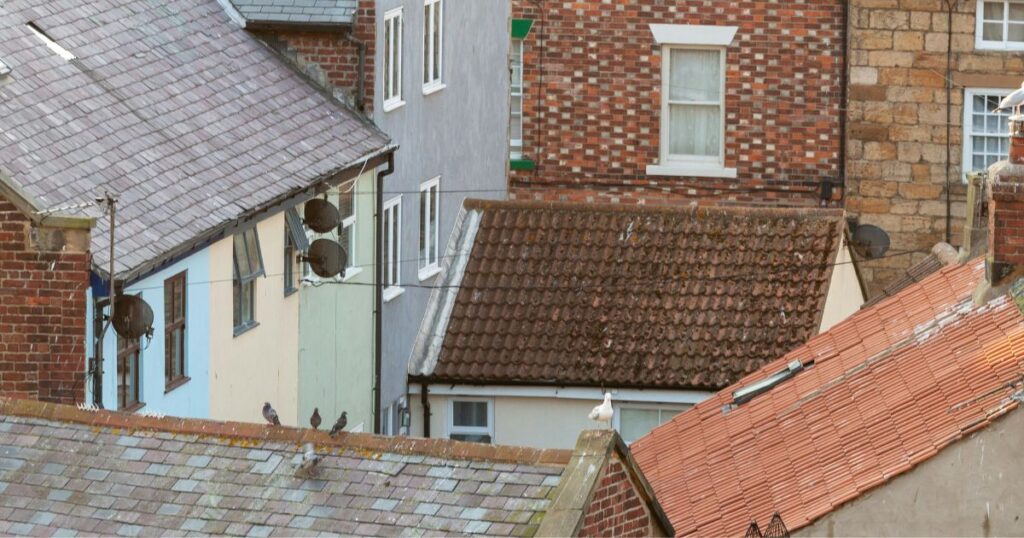Understanding the type of ownership you’re acquiring is essential when buying a property. Freehold tenure is one of the most common forms of property ownership, offering full control over both the land and the property built on it. This guide explains what freehold tenure means, its advantages and disadvantages, and how it compares to other forms of ownership.
Freehold tenure definition
Freehold tenure means you own a property and the land it stands on indefinitely. Unlike leasehold, which grants ownership for a fixed period, freehold offers permanent and absolute ownership unless you choose to sell or transfer the property.
Property owners insurance
If you own a property, protecting it is important. Our business offers comprehensive property owners liability insurance, providing peace of mind while your property is vacant. Contact us to learn more about safeguarding your investment.
Key features of freehold ownership
- Full ownership – The owner has complete control over the property and land.
- No lease expiration – There is no time limit on ownership, unlike leasehold properties.
- No ground rent or service charges – Freeholders do not pay annual fees to a landlord.
- Freedom to modify – Owners can renovate or extend (subject to planning permissions and local laws).
- Full responsibility – The owner is responsible for all maintenance and repairs.
Pros and cons of freehold tenure
Pros:
- Full and permanent ownership.
- No need to worry about lease renewals or expiration.
- No additional payments such as ground rent or service charges.
- Greater flexibility in making modifications to the property.
Cons:
- Higher upfront purchase price compared to leasehold properties.
- Full responsibility for maintenance, repairs, and building insurance.
- Limited availability in some areas, especially in cities where leasehold properties are more common.
Freehold vs. leasehold: key differences
| Feature | Freehold | Leasehold |
|---|---|---|
| Ownership | Permanent ownership of land and property | Temporary ownership, typically 99-999 years |
| Costs | No ground rent or service charges | Ground rent and possible service charges |
| Responsibilities | Full responsibility for maintenance | Landlord or management company may handle maintenance |
| Modifications | Owner has full control over property changes | Requires permission from the freeholder for alterations |
| Selling | No restrictions on selling | Selling can be complex, especially with a short lease |
How to check if a property is freehold
Before purchasing a property, you should verify its tenure. Here’s how:
- Ask the estate agent or seller – They should disclose whether the property is freehold or leasehold.
- Check the Land Registry – In the UK, the Land Registry holds records of property ownership.
- Review legal documents – A solicitor can confirm the tenure in the property’s title deeds.
What is share of freehold?
In some cases, flats or apartments are sold with a share of freehold, meaning the ownership of the freehold is split among the residents. This usually happens when:
- A group of leaseholders purchases the freehold collectively.
- A property is converted into multiple flats, and the owners decide to share freehold ownership.
Commonhold as an alternative to freehold
Commonhold is another type of ownership that applies to apartments or multi-unit buildings. Unlike leasehold, commonhold allows individual property owners to own their unit outright while collectively managing shared areas.
- No lease expiration – Unlike leasehold, commonhold ownership does not expire.
- Collective management – Owners work together to maintain shared spaces, similar to a homeowners’ association.
- Less common than leasehold – Commonhold is not as widely used in the UK but offers an alternative to leasehold arrangements.
Is it better to buy freehold property?
Whether freehold is the better option depends on individual circumstances:
- For houses – Freehold is generally preferable as it offers complete ownership and control.
- For flats – Leasehold is more common, but a share of freehold can provide greater control over the building.
- For long-term investment – Freehold is often a better choice as there are no concerns about lease expiry or renewal costs.
Summary
Freehold tenure offers full and permanent ownership of a property and the land it sits on. It provides more control and eliminates the need for additional payments like ground rent or service charges. However, freeholders also bear the full responsibility for maintenance and repairs. Understanding the differences between freehold, leasehold, and commonhold can help buyers make informed decisions when purchasing property.


